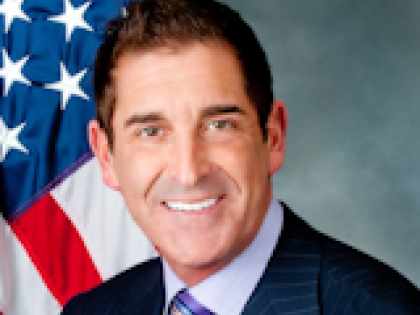
Klein Releases Study: Up In Smoke: Buttlegging, Cybersmokes, And The Disappearance Of New York State Tax Revenue
Jeffrey D. Klein
March 3, 2007

NEW YORK – Senator Jeff Klein (D-Bronx/Westchester) joined by Senator Eric Adams (D-Brooklyn), Senator John Sampson (D-Brooklyn), and Richard Lipsky, President of the Neighborhood Retail Alliance, revealed the results of a study conducted by his office, Up in Smoke: Buttlegging, Cybersmokes, and the Disappearance of New York State Tax Revenue. The report found that New York State has lost approximately $270 million in uncollected cigarette tax revenues from Native-American owned businesses, and that minors routinely purchase cigarettes illegally over the internet. Most of the missing revenues are earmarked to fund the Health Care Reform Act (HCRA) of 2000, which insures over 1.3 million New York families, children, and seniors.
Senator Klein has proposed new legislation which authorizes the state to offer a 50/50 revenue split with Native American tribes who agree to uphold the law and collect taxes on sales to their non-tribal customers. Klein also went one step further and called for better state enforcement of existing tax laws and his 2000 law which bans the direct sale of cigarettes over the internet to New York consumers.
“I’m proposing a real solution to end what is routine robbery of the state. Splitting the tax with Native-American tribes will help guarantee that over a million New Yorkers finally receive the health care they deserve,” said Senator Klein.
Klein continued, “I passed a good law in 2000 to protect minors, but Gov. Pataki has blocked its enforcement at every step. Now, with a reformer like Governor Spitzer at the helm, we can finally protect our children.”
Klein’s 2000 law, the first of its kind in the nation, banned most direct shipments of cigarettes to consumers and imposed tougher penalties for cigarette tax evasion in addition to closing a much abused loop-hole through which tax evading retailers could reapply for revoked licenses through a proxy.
Originally intended to prevent the sale of cigarettes to minors through the internet, enforcement of the law has been hampered by federal restrictions and by the unwillingness of the state Tax Department to pursue legal action against companies that sell untaxed cigarettes to New York residents. Although former Attorney General Eliot Spitzer, successfully negotiated a national agreement with credit card issuers to refuse to process illegal transactions, cigarettes are still routinely bought and sold over the internet via checks and money order and delivered by the United States Postal Service.
To illustrate the problem, Senator Klein watched as a staffer demonstrated how shockingly easy it is to purchase cigarettes over the internet. Klein also presented unstamped, untaxed cigarettes previously purchased over the internet by a minor, featured in an accompanying photograph.
“Illegal purchase of cigarettes over the internet hurts small business, which uphold the law and rely on local commerce. Senator Klein has crafted a practical solution and The Neighborhood Retail Alliance supports his legislation,” said Richard Lipsky, President of the Neighborhood Retail Alliance.
Over 70% of New Yorkers responded to a 2005 survey that they regularly purchase untaxed cigarettes either “all the time” or “sometimes”. In addition to depriving the state of revenue, the availability of untaxed cigarettes undermines continuing public health efforts to prevent and reduce tobacco use.
Klein’s call comes after State Supreme Court Judge, Rose Sconiers, issued a preliminary injunction in January barring New York from enforcing the tax on reservation sales to New Yorkers. The decision cities the state’s failure to create an adequate system by which to consistently collect the tax.
New York State estimates that as much as $270 million has been lost in uncollected taxes. In a year when HCRA programs are facing $219 million in cuts under the executive budget, those lost revenues are sorely needed.
Seneca Indian Nation retailers, alone have sold $347.5 million worth of tobacco products in 2003. Klein’s report highlights the need to negotiate settlements with Native-American tribes and provides examples from other states which have done so successfully.